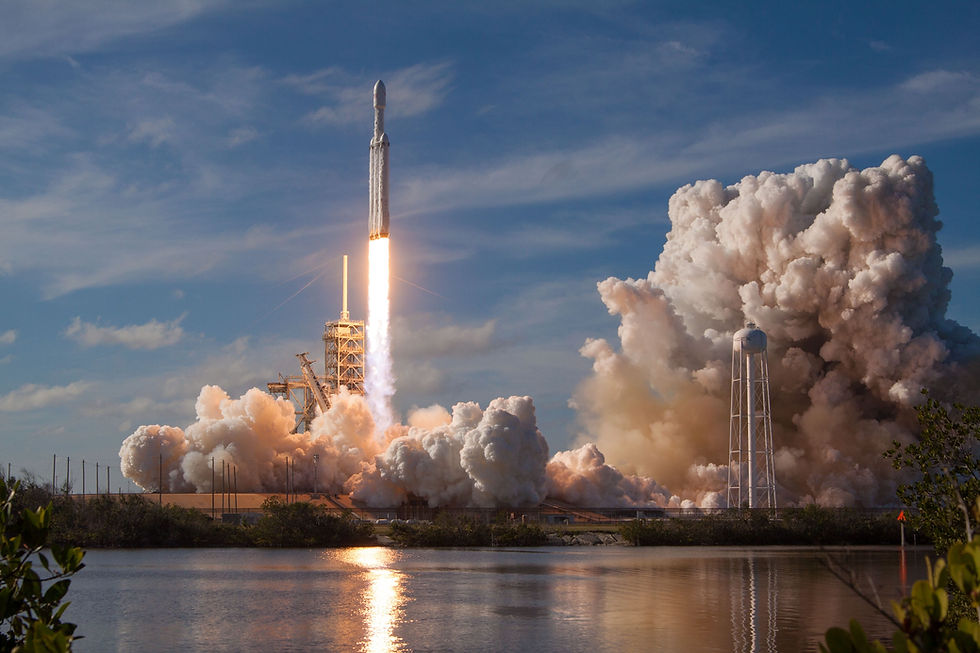The Importance of Field Experiences
- Science Outside

- Mar 9, 2024
- 3 min read

“There are no seven wonders of the world in the eyes of a child. There are seven million.”
-Walt Streightiff
Over the last two decades, safety concerns, financial constraints, heavier workloads for teachers, and an increased focus on standardized testing have created pressures on school leaders to minimize the time students spend beyond the school landscape. Our focus on accountability areas and state testing has resulted in a lot of teachers losing their passion for teaching and a lot of students losing their passion for learning. Students both enjoy and remember far less from their time spent in high school. One powerful remedy is Place-Based Learning, an instructional strategy that uses novel environments as a starting point to engage students and teach concepts.
Science does not happen just in the classroom. Quite on the contrary, most original science happens outside of the classroom, and giving students access to primary sources multiplies the value of what happens in the classroom. Experiential learning events in nontraditional learning spaces can be among the most powerful teaching tools available. Experiential learning takes us beyond the classroom walls to connect with the curriculum, engage all of our senses, and encode long-lasting memories of concepts that will enrich the lives of students. Field experiences cultivate life-long curiosity and contribute to better outcomes in school and beyond. They are also one of the most powerful ways we can share our love of science.
Learning creates changes in the strength of synaptic connections between neurons. Long-term memory involves changes in the structure of neurons including the growth of new processes and synapses. While there is much we do not know, the current consensus understanding is that these changes are most likely to occur during novel and immersive learning experiences.
We need to reexamine our financial priorities and confront our fears if they are stifling our most powerful learning opportunities. We need to have the courage to overcome our fear of stepping outside of our school walls. And most of all, we need to provide opportunities for our students to explore the world in support of extraordinary scientific experiences and, in some cases, cultural interactions.

It is time for teachers and educational leaders to work together to plan and create purposeful, deeply engaging, and exploratory journeys into the world. This is not a return to the days of field trips to get out of school, but purposeful educational experiences directly tied to the curriculum and well-planned to intentionally provide unique opportunities that harness the instructional power of memorable moments. It requires significant effort to make this happen, but our students benefit greatly when they engage in academic pursuits outside of our school walls.
The world’s top private and elite public secondary schools long ago embraced this paradigm and consistently provide all of their students with a series of well-planned, interesting, and diverse learning experiences to enrich and expand the curriculum as they progress through the program of study. They know that this vital educational tool strengthens observation skills by immersing students into deep sensory activities, and creates long-lasting and vivid memories that grow as students share their experiences with others. Take a look at the travel opportunities offered at any of the world’s elite boarding schools. The top Silicon Valley high schools restrict the use of technology in their classrooms and instead focus on a robust combination of in-classroom hands-on learning and in-the-field experiential learning. The top public high schools in the nation consistently plan journeys for their students to America’s historically significant locations, scientific laboratories, and university research sites on their path toward graduation.
In our current climate, it’s primarily public schools with risk-averse leadership that fail to provide these essential place-based learning experiences for their students. It’s an inequity that we need to address if we are going to empower our students to improve their socioeconomic status and keep our nation's citizenry competitive in a rapidly changing world. Well-planned field experiences are worth the effort.




Comments